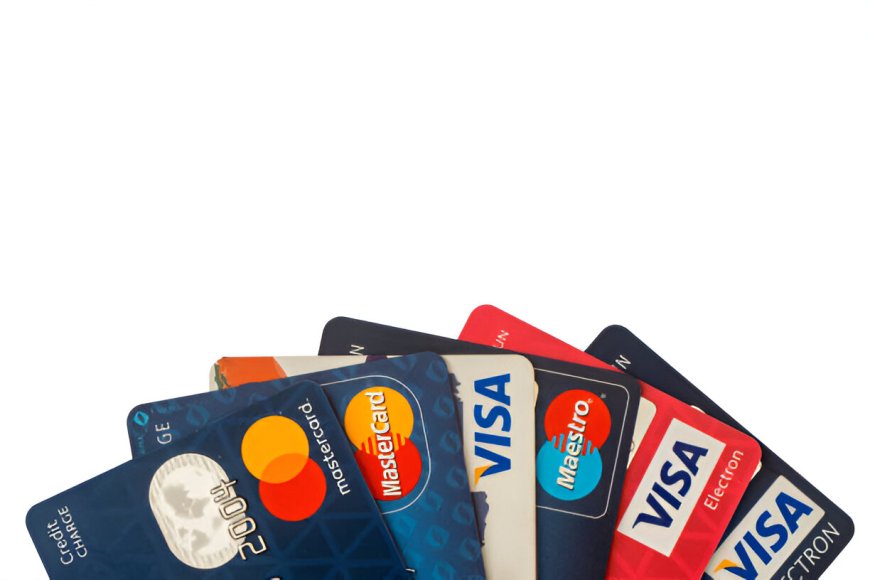How Corporate Visa Gift Card Rewards Motivate Employees and Clients
Boost morale and loyalty! Discover how corporate Visa gift card rewards motivate employees and clients effectively.

Corporate reward programs have evolved way beyond the basic "employee of the month" parking spots and cheap plaques gathering dust on office shelves. Today's businesses need incentive strategies that actually move the needle on performance and loyalty. Corporate Visa gift card rewards have emerged as one of the most effective tools in this space, largely because they solve the personalization problem that plagued traditional programs. Instead of guessing what employees or clients might want, companies can provide flexible rewards that recipients control completely. Research from the Incentive Marketing Association shows that properly designed gift card programs generate 3.2 times better ROI than equivalent spending on generic corporate gifts. The key is understanding how these programs tap into fundamental human psychology around choice and recognition.
The Psychology of Effective Recognition
Traditional corporate rewards often miss the mark because they assume everyone values the same things. A company dinner might thrill extroverts while making introverts uncomfortable. Logo merchandise might appeal to brand-loyal employees while seeming cheesy to others. Gift cards eliminate this guesswork by letting recipients choose their own rewards.
Immediate gratification plays a crucial role in behavior reinforcement. Unlike annual bonuses that get absorbed into regular budgets, gift cards create distinct spending opportunities that employees associate directly with their achievements. This psychological separation makes the reward feel more substantial than equivalent cash amounts.
The element of choice activates what psychologists call "self-determination theory." When people control how they use their rewards, they experience greater satisfaction and stronger positive associations with the reward source. This translates into better long-term motivation and loyalty compared to prescribed rewards.
Employee Engagement Benefits
Performance-based gift card programs create clearer connections between effort and reward than traditional salary structures. Quarterly or monthly distributions tied to specific achievements provide regular motivation cycles rather than relying solely on annual reviews or raises.
Peer recognition programs work particularly well with gift card rewards. Systems where employees can nominate colleagues for small gift card rewards create positive workplace culture while providing immediate recognition for exceptional effort or teamwork.
Remote employee engagement becomes easier when rewards can be delivered digitally. Geographic barriers disappear when recognition can arrive via email within minutes of achievement. This immediacy is particularly valuable for distributed teams where traditional recognition methods don't work well.
Client Retention Strategies
Gift card incentives for client referrals generate measurable results without complicated tracking systems. Unlike percentage-based commissions that require ongoing calculations, fixed gift card amounts provide clear, immediate value that clients can understand and appreciate.
Loyalty programs using gift card rewards encourage repeat business more effectively than discount systems. Rather than reducing profit margins through discounts, gift cards maintain full pricing while providing added value that clients can use flexibly.
Service recovery situations benefit from gift card solutions because they provide immediate, tangible compensation for problems. A $50 gift card feels more substantial than a $50 credit toward future services, even though the economic value is identical.
Cost Management and Budgeting
Predictable program costs make budget planning simpler compared to traditional incentive systems. Gift cards have fixed values that don't fluctuate with market conditions or vendor pricing changes. This predictability helps financial planning and program sustainability.
Volume purchasing agreements reduce per-card costs significantly. Most corporate programs qualify for 2-5% discounts on bulk orders, plus reduced or eliminated activation fees. These savings compound quickly for companies running regular reward programs.
Administrative costs are minimal compared to traditional incentive programs. No event planning, vendor coordination, or inventory management is required. Digital distribution eliminates shipping costs and delivery delays while reducing administrative overhead.
Program Design Best Practices
Timing matters enormously for incentive effectiveness. Immediate rewards for specific achievements create stronger behavioral reinforcement than delayed recognition. Digital gift card delivery makes this immediate gratification possible without complex logistics.
Clear criteria and transparent processes build trust in reward programs. Employees and clients need to understand exactly what behaviors or achievements earn rewards and when they can expect to receive them. Ambiguous programs generate cynicism rather than motivation.
Regular program evaluation ensures continued effectiveness. Track redemption rates, participant feedback, and behavioral changes to identify what's working and what needs adjustment. Successful programs evolve based on actual results rather than assumptions.
Technology Platform Integration
Modern corporate gift card programs integrate with existing HR and CRM systems to automate distribution and tracking. API connections allow rewards to be triggered automatically based on performance metrics, sales achievements, or customer satisfaction scores.
Mobile-first platforms accommodate increasingly mobile workforces. Employees can receive, manage, and redeem rewards through smartphone apps without requiring desktop access or additional hardware.
Analytics dashboards provide real-time insights into program performance and recipient behavior. These tools help identify trends, optimize reward amounts, and demonstrate program ROI to stakeholders.
Compliance and Legal Considerations
Tax implications vary between jurisdictions and reward amounts. Gift cards under certain thresholds may qualify for different tax treatment than cash bonuses, potentially increasing net value to recipients while reducing administrative complexity for employers.
Record keeping requirements demand proper documentation of all reward distributions. Corporate programs need systems that track recipient information, distribution dates, and redemption status for tax reporting and audit purposes.
Employment law compliance ensures reward programs don't create unintended legal obligations or discrimination issues. Consistent application of reward criteria across all eligible participants prevents potential legal complications.
International Program Considerations
Multi-national companies need gift card solutions that work across different countries and currencies. Visa's global network provides consistent functionality, but local regulations and fee structures vary significantly between markets.
Currency exchange considerations affect the actual value recipients receive from international cards. Some programs use local currency cards to eliminate exchange rate uncertainty, while others accept the variability in exchange for simplified administration.
Cultural preferences influence program design in different markets. What motivates employees in Australia might not resonate with teams in Japan or Germany. Successful international programs accommodate these cultural differences while maintaining operational efficiency.







